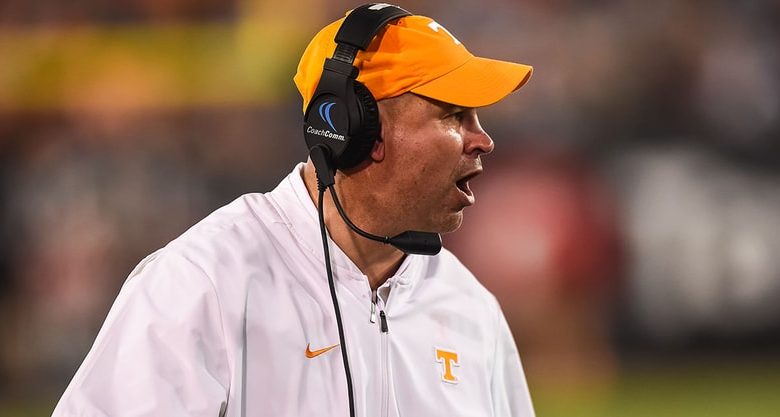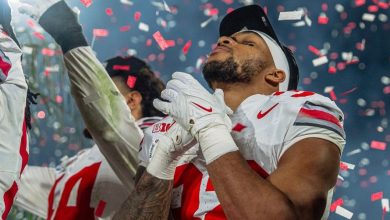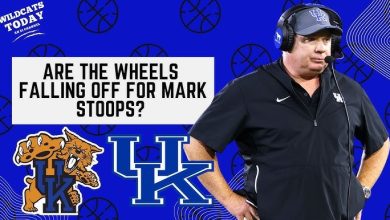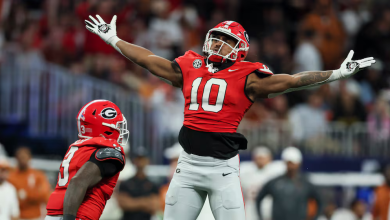Former Vols coach dismissed for player benefits sues NCAA for rendering him a ‘sacrificial lamb’.

In one of the most high-profile legal battles to hit the world of college sports, former University of Tennessee football head coach Jeremy Pruitt has filed a lawsuit against the NCAA, seeking $100 million in damages for the loss of his career, reputation, and financial earnings. Pruitt, who was dismissed by the university in 2021 following allegations of NCAA violations involving improper benefits to players, claims that the NCAA unfairly targeted him as a “sacrificial lamb” and that its actions led to both his firing and the destruction of his career. The lawsuit, filed in federal court, is not just about a coach seeking compensation; it’s about challenging the authority of the NCAA, questioning the fairness of its enforcement mechanisms, and redefining how coaches are treated in the world of college athletics.
This case has significant implications not only for Jeremy Pruitt but also for the entire structure of college sports. The NCAA, which has long held an iron grip over the landscape of collegiate athletics, now faces the legal scrutiny of its decision-making and enforcement procedures. For Pruitt, the lawsuit represents an opportunity to seek redress for what he believes was an unjust and flawed process that cost him his job and professional future. It is a high-stakes legal battle that could forever alter the relationship between coaches, the NCAA, and the institutions that they serve.
The Downfall of Jeremy Pruitt: Allegations and Dismissal
Jeremy Pruitt’s tenure as the head coach of the Tennessee Volunteers was, in many ways, a promising yet ultimately disappointing chapter in the university’s storied football history. Hired in 2018 after a successful stint as the defensive coordinator at Alabama, Pruitt was seen as the man who could restore Tennessee to its former glory. Tennessee, which had fallen on hard times in recent years, hoped Pruitt’s defensive acumen and ability to recruit top talent would turn the program around.
However, Pruitt’s time in Knoxville was marred by underperformance on the field and allegations of violations off it. The Vols’ record under Pruitt was inconsistent—while Tennessee showed promise in some seasons, it failed to contend for SEC titles or major bowl games. By the end of his second season, the pressure began to mount, and Pruitt’s tenure started to show cracks. Then, in January 2021, the university announced that Pruitt had been fired after an internal investigation into alleged NCAA violations regarding improper benefits given to recruits and players.
The allegations revolved around Pruitt and his staff allegedly providing illegal benefits to prospective recruits and current players, such as gifts, cash, and other improper inducements. The investigation led the university to part ways with Pruitt, and the NCAA’s enforcement committee quickly took notice. Tennessee’s self-imposed sanctions included a ban from postseason play for the 2021 season, and the program was placed under probation.
Pruitt, who had been hired with high expectations, was left reeling from the decision. His firing came at a time when his future as a head coach in college football seemed uncertain. The public nature of the investigation and the swift action taken by the university left Pruitt in a vulnerable position. But it wasn’t just his firing that would haunt Pruitt—it was the way in which he felt the NCAA’s enforcement actions were unfairly aimed at him.
The Lawsuit: Alleging Unfair Targeting and ‘Sacrificial Lamb’ Status
In his lawsuit, filed in federal court, Jeremy Pruitt alleges that the NCAA acted in a manner that was not only unjust but also strategically positioned him as a “sacrificial lamb.” According to Pruitt, the NCAA and the University of Tennessee used him as a scapegoat to protect the university from more severe penalties. The lawsuit claims that the NCAA failed to provide due process and acted in a biased and inconsistent manner, ultimately costing him millions of dollars in lost earnings and irreparably damaging his reputation.
Pruitt’s legal team argues that while the allegations against the Tennessee football program were serious, he should not have been made the focal point of the investigation. In the lawsuit, Pruitt contends that he was unaware of many of the alleged violations and that, as the head coach, he should not have been held accountable for actions taken by assistants and other members of the staff. His legal team maintains that he was unfairly scapegoated, placed in the crosshairs by both Tennessee and the NCAA, and subjected to disproportionate punishment without adequate opportunity to defend himself.
The lawsuit also accuses the NCAA of failing to adhere to its own procedural rules during the investigation. Pruitt’s attorneys argue that the governing body of college sports acted with haste and without proper consideration for the facts. The lack of transparency and fairness in the process is a central component of the lawsuit, with Pruitt’s team asserting that the NCAA failed to offer him a fair hearing or sufficient opportunity to respond to the allegations against him.
Pruitt’s legal team is also seeking damages for defamation. The public nature of the allegations against him has caused significant damage to his reputation, the lawsuit claims. In the eyes of many, Pruitt is now forever associated with the scandal that led to his firing, and this, according to his attorneys, has made it nearly impossible for him to continue his career in college football. The defamation claim centers on the notion that the NCAA’s actions have had far-reaching consequences, extending well beyond the immediate fallout of his firing.
The lawsuit further argues that Pruitt was denied the opportunity to continue his career as a head coach, pointing to the significant financial damages caused by his wrongful termination and the negative public perception that followed. As a highly paid coach, Pruitt was positioned to earn millions of dollars over the course of his career, but his sudden firing—coupled with the scandal surrounding the program—derailed his ability to secure another high-level job in the college football world.
The Broader Implications for the NCAA and College Sports
The lawsuit filed by Jeremy Pruitt has far-reaching implications not only for his career but for the entire college sports system. At its core, Pruitt’s legal battle challenges the NCAA’s enforcement mechanisms, shining a light on the often opaque and inconsistent process by which violations are investigated and penalized. The case raises critical questions about fairness, accountability, and transparency in the NCAA’s dealings with coaches, players, and institutions.
For years, the NCAA has held absolute authority over the college athletics landscape, meting out punishments for everything from minor infractions to major violations. But in recent years, the governing body has faced increasing scrutiny for its practices, particularly its handling of investigations and the perceived lack of due process for those accused of wrongdoing. The Pruitt lawsuit could set a precedent for future cases involving coaches and NCAA enforcement, potentially leading to changes in the way the organization handles disciplinary actions and investigations.
One of the central issues raised by Pruitt’s lawsuit is the power imbalance between the NCAA and individual coaches. As the head coach of a major program, Pruitt was responsible for the overall success and integrity of the football team, but the lawsuit suggests that he was held accountable for actions that were outside his immediate control. Coaches in the NCAA system operate under intense pressure to win and recruit top talent, but they are also required to navigate a complex and often ambiguous set of rules governing everything from recruitment to compliance. Pruitt’s case brings into question whether coaches are being asked to bear the brunt of violations, even when they may not have been aware of or directly involved in the infractions.
Moreover, the Pruitt lawsuit could prompt a reevaluation of the NCAA’s handling of high-profile coaching contracts. Coaches, especially those at major programs, often sign lucrative contracts with the expectation of job security and financial rewards for success. Pruitt’s sudden dismissal—and the loss of his lucrative contract—raises important questions about the protections afforded to coaches and the broader implications for the coaching profession. If Pruitt wins his case, it could have a ripple effect across the NCAA, leading to greater accountability for the organization’s decisions and potentially encouraging other coaches to challenge the NCAA’s enforcement actions in court.
The Future of Jeremy Pruitt and College Coaching
As for Jeremy Pruitt, his future in college football is uncertain. Despite the lawsuit, Pruitt’s reputation has been tarnished by the scandal surrounding his tenure at Tennessee, and many within the college football community view him as a cautionary tale of a coach whose career was derailed by off-the-field issues. However, if Pruitt is successful in his lawsuit, it could pave the way for his return to coaching at a high level. Winning the case could restore his reputation and provide him with the financial compensation he believes he is owed.
Regardless of the outcome, Pruitt’s lawsuit is a reminder of the high-stakes nature of college coaching and the scrutiny that coaches are under. College athletics has become a billion-dollar industry, and coaches are often the face of multi-million dollar programs. As such, they must navigate not only the pressure to win but also the often-unforgiving legal and compliance environment that comes with running a high-profile program.
For now, the lawsuit between Jeremy Pruitt and the NCAA will continue to play out in the courts, and its implications for college sports will be closely watched. The case may well serve as a turning point in the relationship between coaches, their institutions, and the governing body of college athletics, sparking changes that could reshape the future of college sports for years to come.









